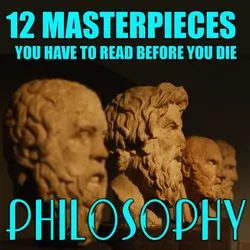For some time much has been said, in England and on the Continent, concerning "Positivism" and "the Positive Philosophy." Those phrases, which during the life of the eminent thinker who introduced them had made their way into no writings or discussions but those of his very few direct disciples, have emerged from the depths and manifested themselves on the surface of the philosophy of the age. It is not very widely known what they represent, but it is understood that they represent something. They are symbols of a recognised mode of thought, and one of sufficient importance to induce almost all who now discuss the great problems of philosophy, or survey from any elevated point of view the opinions of the age, to take what is termed the Positivist view of things into serious consideration, and define their own position, more or less friendly or hostile, in regard to it. Indeed, though the mode of thought expressed by the terms Positive and Positivism is widely spread, the words themselves are, as usual, better known through the enemies of that mode of thinking than through its friends; and more than one thinker who never called himself or his opinions by those appellations, and carefully guarded himself against being confounded with those who did, finds himself, sometimes to his displeasure, though generally by a tolerably correct instinct, classed with Positivists, and assailed as a Positivist. This change in the bearings of philosophic opinion commenced in England earlier than in France, where a philosophy of a contrary kind had been more widely cultivated, and had taken a firmer hold on the speculative minds of a generation formed by Royer-Collard, Cousin, Jouffroy, and their compeers. The great treatise of M. Comte was scarcely mentioned in French literature or criticism, when it was already working powerfully on the minds of many British students and thinkers. But, agreeably to the usual course of things in France, the new tendency, when it set in, set in more strongly. Those who call themselves Positivists are indeed not numerous; but all French writers who adhere to the common philosophy, now feel it necessary to begin by fortifying their position against "the Positivist school." And the mode of thinking thus designated is already manifesting its importance by one of the most unequivocal signs, the appearance of thinkers who attempt a compromise or juste milieu between it and its opposite. The acute critic and metaphysician M. Taine, and the distinguished chemist M. Berthelot, are the authors of the two most conspicuous of these attempts.

5 textes féministes - D'Olympe de Gouges à George Sand
Claire de Duras, Olympe de Gouges, Jack London, John Stuart Mill, George Sand
book
Utilitarianism :
John Stuart Mill
audiobook
12 Masterpieces You Have to Read Before You Die. Philosophy
Niccolo Machiavelli, Tommaso Campanella, Francis Bacon, Thomas More, John Stuart Mill, Immanuel Kant, Kahlil Gibran, Leo Tolstoy, G.K. Chesterton, Henry David Thoreau
audiobook
50 Klassiker des Feminismus - Bücher, die man kennen muss
Kate Chopin, Charlotte Perkins Gilman, Virginia Woolf, Charlotte Brontë, George Sand, Louisa May Alcott, Jane Austen, L.M. Montgomery, Victor Hugo, Daniel Defoe, Nathaniel Hawthorne, Wilhelmine von Hillern, Adalbert Stifter, Luise Ahlborn, George Eliot, Lou Andreas-Salomé, D. H. Lawrence, Henry James, Margaret Mitchell, Edith Wharton, Miles Franklin, Willa Cather, Leo Tolstoi, Henrik Ibsen, Elizabeth Gaskell, Nikolai Semjonowitsch Leskow, Theodore Dreiser, Elizabeth von Arnim, Colette, Emmeline Pankhurst, Louise Aston, Bertha von Suttner, Hedwig Dohm, Mary Wollstonecraft, Elizabeth Cady Stanton, Matilda Joslyn Gage, John Stuart Mill, Thomas Hardy, Sinclair Lewis, Elizabeth Burgoyne Corbett, Anne Brontë
book
20 Feministische Klassiker für junge Aktivistinnen : Verteidigung der Rechte der Frau, Ein Zimmer für sich allein, Die gelbe Tapete, Die Bibel der Frau, Das Erwachen, Neue Amazonia, Kleine Frauen
Virginia Woolf, Rosa Luxemburg, Kate Chopin, Charlotte Perkins Gilman, Mary Wollstonecraft, Elizabeth Cady Stanton, Matilda Joslyn Gage, John Stuart Mill, Louise Otto, Clara Zetkin, Rosa Mayreder, Bertha Pappenheim, Charlotte Brontë, George Sand, Louisa May Alcott, Sinclair Lewis, Henrik Ibsen, Elizabeth Burgoyne Corbett, Miles Franklin
book
Über die Freiheit : Die Freiheit des Individuums vom Staat - Ausgabe in neuer Übersetzung und Rechtschreibung
John Stuart Mill
book
Vapaudesta
John Stuart Mill
audiobookbook
15+ Political Science. Classics Collection : The Art of War, Tao Te Ching, The Republic, Meditations, The Prince, Utopia, Utilitarianism, Anarchism and others
Sun Tzu, Lao Tzu, Plato, Marcus Aurelius, Niccolo Machiavelli, Thomas More, Tommaso Campanella, Francis Bacon, Thomas Paine, John Stuart Mill, Karl Marx, Friedrich Engels, Vladimir Lenin, Rosa Luxemburg, Peter Kropotkin, Emma Goldman, Leon Trotsky
audiobook
50 Meisterwerke der Philosophie : Metaphysik, Das Gastmahl, Bhagavadgita, Tractatus logico-philosophicus, Kritik der reinen Vernunft, Also sprach Zarathustra, Selbstbetrachtungen von Marcus Aurelius
Ludwig Wittgenstein, Edmund Husserl, Karl Marx, Sören Kierkegaard, Friedrich Nietzsche, Ralph Waldo Emerson, John Stuart Mill, Georg Wilhelm Friedrich Hegel, Friedrich Schelling, Johann Gottlieb Fichte, Immanuel Kant, John Locke, Montesquieu, Jean-Jacques Rousseau, David Hume, Gottfried Wilhelm Leibniz, Baruch Spinoza, - Konfuzius, Lao Tse, Platon, Xenophon, - Aristoteles, Marcus Tullius Cicero, Seneca, Epiktet, Marc Aurel, Plotin, Thomas von Aquin, Nicolaus von Cues, - Erasmus von Rotterdam, Niccolò Machiavelli, Tommaso Campanella, Martin Luther, Giordano Bruno, Samuel von Pufendorf, Abbé Castel de Saint-Pierre, Michel de Montaigne, René Descartes, Francis Bacon, Blaise Pascal
book
JOHN STUART MILL - Ultimate Collection: Works on Philosophy, Politics & Economy (Including Memoirs & Essays) : A Comprehensive Compilation of Mill's Influential Works and Insights
John Stuart Mill
book
The Collected Works of John Stuart Mill : Exploring Utilitarianism, Liberty, and Political Progress in 19th Century England
John Stuart Mill
book
ON LIBERTY - The Philosophy of Individual Freedom : Exploring the Tapestry of Human Liberty and Autonomy
John Stuart Mill, W. L. Courtney
book
